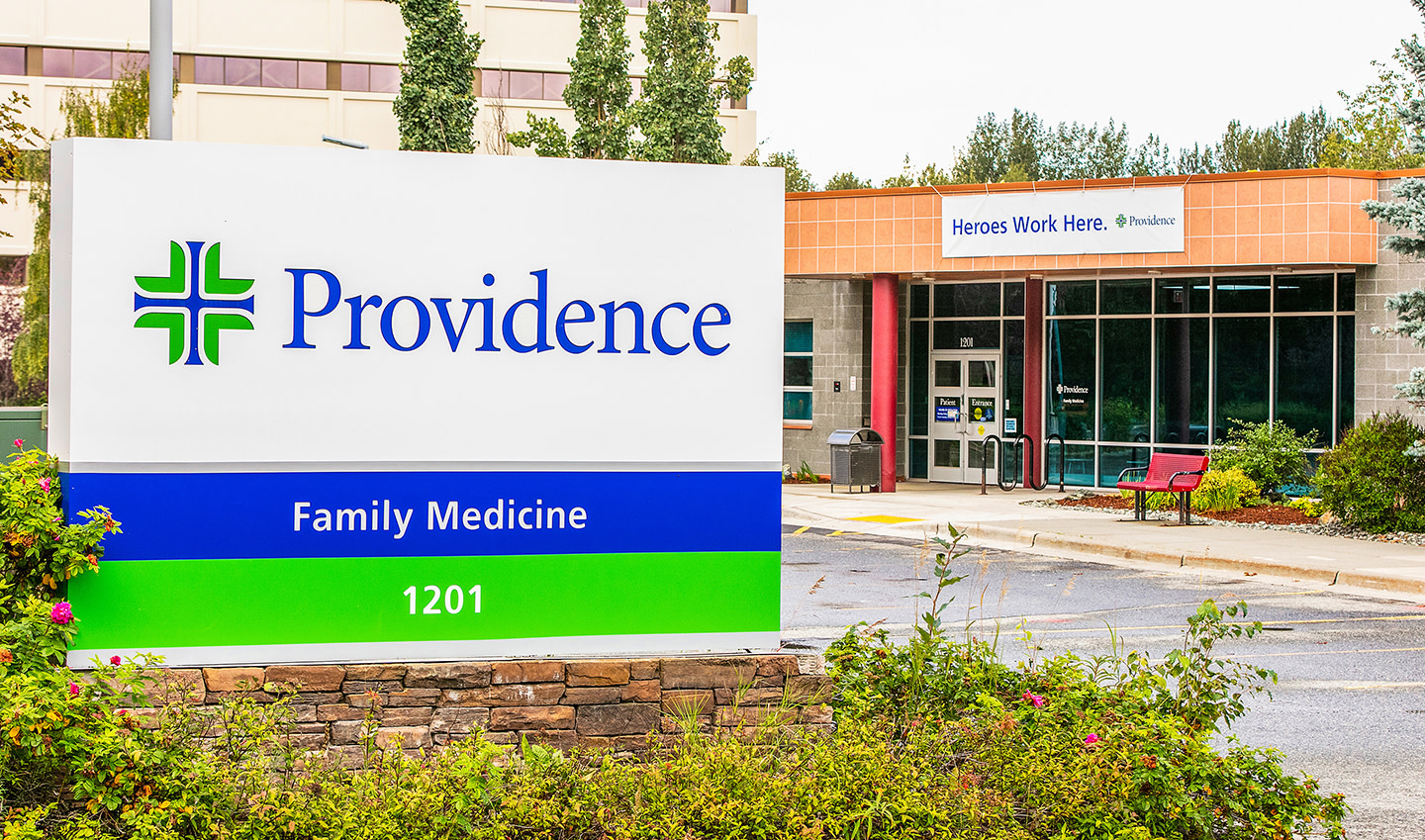Food bank and senior center team up to feed Valdez elders

For more than 120 years, Providence Alaska's commitment to provide for the poor and vulnerable in our state has been unwavering. In 2023, we invested $65 million in total benefit to the communities we serve, including $19 million in free and discounted care.
Janice Hawk moved to Valdez nearly four years ago to be closer to her daughter. It was a big change from California, where mostly pleasant weather and a larger population meant easy access to everyday amenities.
“There’s nothing here that I don’t like,” said Hawk, who lives in an apartme
nt in downtown Valdez and has mobility issues that limit her ability to easily navigate. “It’s the things that aren’t here that I don’t like.”
Those things – such as easy access to health care, reliable public transportation, and plentiful grocery shopping opportunities – are what she misses most. Recently, after getting a ride to the sole grocery store in town, she entered with the aid of her walker only to discover the store’s only electric wheelchair was not charged.
“That’s the kind of thing that changes my whole day,” she said.
Thankfully, Hawk said she discovered the Valdez Senior Center, which in cooperation with the Valdez Food Bank, delivers daily meals to her home. She pays for the Meals on Wheels program but also benefits from the Food Bank’s twice-monthly delivery of frozen and shelf-stable items to stock her pantry. In 2023, Providence Alaska provided $67,000 to the Valdez Food Bank to not only fund programs like these, but also provide emergency financial assistance to low-income families.
“That grant gets split up among all of our programs,” said Michelle Chase, president of the Emergency Assistance and Food Bank of Valdez board of directors. “The food packaging and deliveries are put together by volunteers, and the senior center delivers it. The money we use for that program comes from our food budget and helps people throughout the community.”
Byron Hales, Valdez Senior Center’s director, said delivering meals and additional pantry items to the elderly encourages those individuals to eat nutritional food. The center’s volunteers deliver to about 50 people, but he suspects the need is even higher. But, he added, there are other intangible benefits to the deliveries.
“When we are delivering food to people, it constitutes kind of an informal wellness check,” Hales said. “For some of these people, this is the only contact we have with them at all. The opportunity to see someone and have human contact is so crucial. Just little interactions can be so healthy for people, so I think that is a huge benefit of these deliveries.”
Hales said the deliveries also give volunteers the chance to see if any other needs could be met.
“So, we may be delivering food, and someone may mention that they have a doctor’s appointment that next Thursday,” he said. “We can arrange to pick them up and get them there. Or we may pick up their mail for them at the post office. There are so many little things we can do to help.”
Looked at from another angle, Hawk said the smallness and remoteness of her community could also be considered a bonus over her time in California. Here, people know who she is; they look out for her. The senior center helped her find an electric wheelchair; they provided her with a cane with spikes on it to navigate Valdez’s wintry conditions. They helped transcribe her medical records from California so she could submit them to her new care providers in town.
“They are so kind and helpful,” she said. “I can call, and they just help.”
Hawk said she strives to be as independent as possible, despite her physical limitations. Receiving daily meals and the food supply bags eases the necessity of getting to the grocery store as often.
“The food delivery helps limit the time that I have to be standing in the kitchen," she said. “And the food bags are good too – any kind of fruit and protein is good.”
Also, she said, she suspects she is eating much healthier than if she was cooking and buying on her own.
“Their meals are much more balanced than what I’d make for myself,” she said, laughing. “If I was making spaghetti, it would be sauce and noodles. I wouldn’t include broccoli with it like they do, but it is really good, and I’m getting my vegetables.”
Enter content here


